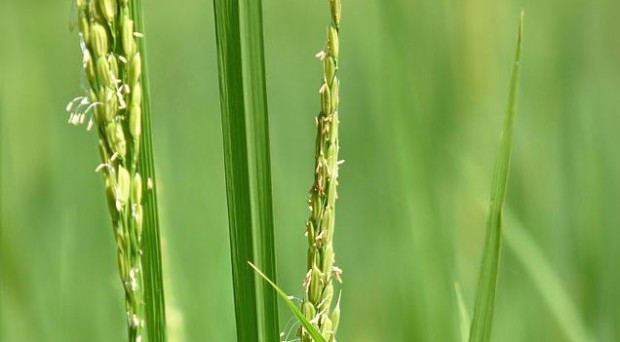
Second generation biofuel production aims to use waste carbohydrate feedstocks, such as straw and wood, to avoid competition with food production. In a further step towards sustainability, a method has been developed by Japanese researchers to ferment ethanol inside plastic-wrapped rice bales, yielding fuel ethanol at the same time as silage for cattle feed, with no waste.
In the research, published in Biotechnology for Biofuels, Mitsuo Horita and colleagues from the National Institute for Agro-Environmental Sciences, Japan, added enzymes and yeast to bales of whole rice plants, so that they could breakdown the straw into fermentable sugars.
The process, known as solid state fermentation, produced a concentration of 139.6g ethanol per kilo of rice bale in six months – ten times the amount of ethanol that would result from natural fermentation of silage by wild yeast. The ethanol was drained from the bale and easily recovered by vacuum distillation, resulting in good quality fuel grade ethanol. The co-produced silage was shown to be of high nutritional value, containing increased protein and lactic acid (a stabilizer), compared to normal silage.
The strategy is appealing as a simple method for the entire process of bioethanol production, that can be deployed on a local scale by individual farmers. Although the enzymes and yeast consumed are costly, this “on farm” solution has economic benefits over equivalent industrial scale production, in that transport costs for bulky feedstocks and the resulting vehicle fuel are minimised.
Sustainable biofuel production in an agricultural setting could bring particular benefit to farmers in the developing world. Many countries with poor energy security lack the infrastructure and investment to produce biofuel. On farm production can be introduced and scaled-up relatively easily and as shown by this example, can work in synergy, instead of competing with food supply for agricultural resources.
Helen Whitaker
Latest posts by Helen Whitaker (see all)
- Biotechnology for a bio-based economy - 5th June 2019
- Sustainable energy at the American Chemical Society Spring meeting - 11th April 2018
- Biotechnology for Biofuels – Special Issue on Life Cycle Analysis - 17th May 2017
Some amazing innovations are happening lately. Can’t wait to see what the future holds for biofuel! Thanks for sharing!
It’s so thrilling to learn about this new strategy in biofuel. It seems that I can always find something interesting to read in this site. Thanks for sharing.